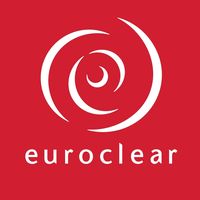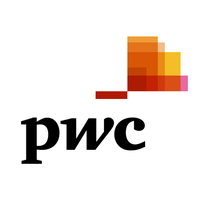Navigating the Waters of Corporate Governance: Insights from Upcoming Annual General Meetings
April 6, 2025, 3:41 am

Location: Belgium, Brussels-Capital, Brussels
Employees: 1001-5000
Founded date: 1968
Total raised: $823.4M
In the world of corporate governance, the Annual General Meeting (AGM) serves as a crucial compass. It guides shareholders through the tumultuous seas of decision-making, accountability, and strategic direction. Two companies, BoMill AB and Projektengagemang Sweden AB, are set to hold their AGMs on May 8, 2025. Each meeting promises to unveil the companies' futures, but they also highlight the intricate dance of shareholder engagement and corporate responsibility.
BoMill AB, a company rooted in innovative grain sorting technology, will host its AGM at its headquarters in Vintrie. The meeting is not just a formality; it’s a platform for shareholders to voice their opinions and shape the company’s trajectory. The agenda is packed with significant resolutions, including the adoption of financial statements and the election of board members. Shareholders must navigate the waters of registration and participation, ensuring they are listed in the share register by April 29, 2025, to cast their votes.
On the other hand, Projektengagemang Sweden AB, a consulting giant in the building and architecture sector, will convene its AGM in Stockholm. The meeting is a pivotal moment for the company, where shareholders will discuss the adoption of the income statement and balance sheet, as well as the allocation of profits. Like BoMill, Projektengagemang emphasizes the importance of shareholder participation. Shareholders must also register their shares in their own names to ensure their voices are heard.
Both companies emphasize the need for clear communication. BoMill has made provisions for shareholders to participate via postal voting, a nod to the evolving landscape of corporate governance. This flexibility allows shareholders to engage without the constraints of physical presence. Similarly, Projektengagemang offers postal voting, ensuring that even those unable to attend can still influence the outcome of key decisions.
The proposed agendas for both meetings reveal a common thread: the importance of transparency and accountability. BoMill’s agenda includes the election of board members and the approval of the annual report, while Projektengagemang’s agenda covers the election of directors and the approval of the Board’s remuneration report. These elements are not mere formalities; they are the bedrock of trust between shareholders and management.
The role of the Nomination Committee is also highlighted in both meetings. In BoMill, the committee proposes Lars Persson as the chairperson, while Projektengagemang’s committee recommends Per-Arne Gustavsson for the same role. These nominations are critical, as the chairperson sets the tone for the meeting and influences the board’s dynamics. The selection process underscores the importance of leadership in steering the company towards its strategic goals.
Financial performance is a focal point in both AGMs. BoMill’s board has proposed no dividend for the fiscal year 2024, a decision that reflects a cautious approach in uncertain economic waters. Similarly, Projektengagemang has also proposed no dividend, signaling a focus on reinvestment and growth. These decisions may stir discussions among shareholders, as they weigh the benefits of immediate returns against long-term sustainability.
As the meetings approach, shareholders are reminded of their rights. Both companies encourage shareholders to request information that may impact their decisions. This transparency fosters a culture of openness, allowing shareholders to make informed choices. It’s a reminder that in the corporate world, knowledge is power.
The logistics of participation are also crucial. BoMill provides multiple channels for shareholders to register their attendance, including email and phone. Projektengagemang follows suit, offering various methods for notification. This accessibility is vital in today’s fast-paced environment, where shareholders expect convenience and efficiency.
In conclusion, the upcoming AGMs of BoMill AB and Projektengagemang Sweden AB are more than just routine gatherings. They are pivotal moments that shape the future of these companies. As shareholders prepare to navigate the waters of corporate governance, they must engage actively, ask questions, and make their voices heard. The decisions made in these meetings will ripple through the companies, influencing their paths for years to come. In the end, the AGM is not just a meeting; it’s a powerful tool for shaping corporate destiny.
BoMill AB, a company rooted in innovative grain sorting technology, will host its AGM at its headquarters in Vintrie. The meeting is not just a formality; it’s a platform for shareholders to voice their opinions and shape the company’s trajectory. The agenda is packed with significant resolutions, including the adoption of financial statements and the election of board members. Shareholders must navigate the waters of registration and participation, ensuring they are listed in the share register by April 29, 2025, to cast their votes.
On the other hand, Projektengagemang Sweden AB, a consulting giant in the building and architecture sector, will convene its AGM in Stockholm. The meeting is a pivotal moment for the company, where shareholders will discuss the adoption of the income statement and balance sheet, as well as the allocation of profits. Like BoMill, Projektengagemang emphasizes the importance of shareholder participation. Shareholders must also register their shares in their own names to ensure their voices are heard.
Both companies emphasize the need for clear communication. BoMill has made provisions for shareholders to participate via postal voting, a nod to the evolving landscape of corporate governance. This flexibility allows shareholders to engage without the constraints of physical presence. Similarly, Projektengagemang offers postal voting, ensuring that even those unable to attend can still influence the outcome of key decisions.
The proposed agendas for both meetings reveal a common thread: the importance of transparency and accountability. BoMill’s agenda includes the election of board members and the approval of the annual report, while Projektengagemang’s agenda covers the election of directors and the approval of the Board’s remuneration report. These elements are not mere formalities; they are the bedrock of trust between shareholders and management.
The role of the Nomination Committee is also highlighted in both meetings. In BoMill, the committee proposes Lars Persson as the chairperson, while Projektengagemang’s committee recommends Per-Arne Gustavsson for the same role. These nominations are critical, as the chairperson sets the tone for the meeting and influences the board’s dynamics. The selection process underscores the importance of leadership in steering the company towards its strategic goals.
Financial performance is a focal point in both AGMs. BoMill’s board has proposed no dividend for the fiscal year 2024, a decision that reflects a cautious approach in uncertain economic waters. Similarly, Projektengagemang has also proposed no dividend, signaling a focus on reinvestment and growth. These decisions may stir discussions among shareholders, as they weigh the benefits of immediate returns against long-term sustainability.
As the meetings approach, shareholders are reminded of their rights. Both companies encourage shareholders to request information that may impact their decisions. This transparency fosters a culture of openness, allowing shareholders to make informed choices. It’s a reminder that in the corporate world, knowledge is power.
The logistics of participation are also crucial. BoMill provides multiple channels for shareholders to register their attendance, including email and phone. Projektengagemang follows suit, offering various methods for notification. This accessibility is vital in today’s fast-paced environment, where shareholders expect convenience and efficiency.
In conclusion, the upcoming AGMs of BoMill AB and Projektengagemang Sweden AB are more than just routine gatherings. They are pivotal moments that shape the future of these companies. As shareholders prepare to navigate the waters of corporate governance, they must engage actively, ask questions, and make their voices heard. The decisions made in these meetings will ripple through the companies, influencing their paths for years to come. In the end, the AGM is not just a meeting; it’s a powerful tool for shaping corporate destiny.
